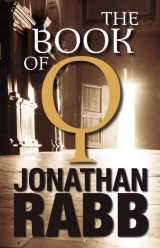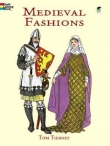
Текст книги "The Book of Q"
Автор книги: Jonathan Rabb
Жанр:
Триллеры
сообщить о нарушении
Текущая страница: 8 (всего у книги 28 страниц)
“I do what I can,” said Blaney. The phone rang; he picked up. “Yes. … I see. When? … No, that won’t be necessary. … All right. Keep me informed.” He replaced the receiver.
“Well?” the cardinal asked.
Blaney looked up; it took him a moment to focus on von Neurath. “What? Oh. No, that wasn’t about His Holiness. We have a bit of a problem. The priest at San Clemente has disappeared.”
“I thought Kleist was taking care of that?”
“As you said, I’m not very good with the mundane, but obviously he hasn’t.”
“And the monk?”
“I can take care of that. The priest should be Herr Kleist’s focus now.”
“Agreed.” Von Neurath waited before continuing. “Do we know he has the scroll?” Blaney remained silent. “Do we know if he even understands what it is?” Again, no answer. Von Neurath stared out into the lights. “Then we do have a problem.”
Pearse felt a tap on his shoulder, his first sensation a grinding stiffness in his neck. For several seconds, he had no idea where he was, his eyes as yet unwilling to open to more than slits. He lay on his side, legs drawn to his chest, hands wedged between cheek and the hard wooden surface below. Trying to sit up, he nearly toppled from his perch. He placed a hand on the bench in front of him to steady himself. As his eyes strained against sleep, he noticed the church had grown brighter, a hint of sun peeking through the opening at the apex of the dome. Streaks of light cascaded across the top third of the walls. The saints, however, remained in dusky gray.
“Scusi,”said a voice to his left. “Ma non si puo dormire qui, giovane.”
Pearse turned to see a priest standing over his shoulder, a man easily in his late seventies, thick black-rimmed glasses covering most of his face. His eyes refracted to enormous proportions through the lenses, giant brown balls filling the weighted glass. Still, there was a pleasantness to the face, thin lips drawn up in an expression of concern and understanding. When he noticed Pearse’s clothes, his eyes seemed to grow even larger behind the frames.
“Oh,” he continued in Italian, “I didn’t realize you were a priest.” The revelation, however, granted only a momentary reprieve, the slow realization that a priest had been lying asleep in his church even more troubling. He didn’t seem to know how to respond. “Were you … in prayer, Father?” An odd question, but the best he could do.
“I … Yes. I came in to pray,” answered Pearse. “I didn’t mean to …” For some reason, his hand rose to his neck.
Again, the old priest appeared to be at a loss, the gentle face etched with confusion. A priest asleep, with no collar. How could one explain that? “I have some extra ones,” he nodded, eager to move beyond his misgivings, or at least to distance himself from them; he started toward a set of stairs at the far end of the altar.
Pearse looked around; the church was empty. “Do you know what time it is, Father?” he asked.
“Just after five,” the old man answered without turning around. “When I always come in.” A wavering hand appeared, pointing to the top of the steps. “It’s just up there. The collar.” Pearse stood and followed, his legs tight from the cramped position of a lengthy nap.
The office was austerity itself, two straight-backed wooden chairs, no cushions, each standing guard before an equally uninviting desk, another chair stationed behind, all of them under the watchful gaze of a crucifix holding firm against the decay of crumbling walls. The domed ceiling of the small enclosure rose to perhaps eight feet at its height, the room clearly an afterthought, as if the space had been grudgingly ceded by a miserly sanctuary. The old priest shuffled to the desk, opened one of its drawers, and pulled out a new collar. “I always seem to forget if I have enough. Whenever I pass by Gammarelli’s, I think I should stop and get one.” Pearse nodded, recalling the sartoria ecclesiasticajust off the Piazza Minerva. “An old man.” He smiled. “I must have twenty of them tucked away in here.” Pearse stepped across, took the collar, and fitted it into his shirt.
“Thank you.”
“You’re not Italian,” said the priest.
“No. American.”
“You have no place to stay?” he asked, continuing before Pearse could answer. “We once had a father from Albuquerque,” the pronunciation thoroughly mangled. “He said he had lost all of his baggage, his papers. He had no collar, either. We gave him a hot meal.”
“Albuquerque. Really?” Pearse smoothed out the collar, at the same time rubbing the cramp from his neck. “Actually, I have rooms at the-” He cut himself short. “Not far from here.” He smiled. “I come from Boston … a small parish.” He had no idea what had provoked the impromptu confession, but it seemed to have the desired effect. The man listened intently. “I came in to pray early this morning. I must have been more tired than I realized.”
“Of course.” A sudden gleam filled the old man’s eyes. “Would you like to take the Mass?” he asked, an eagerness in his voice, eyes wider still.
Pearse began to shake his head, then stopped. Why else had he come in? When else would he have the opportunity? Given the last twelve hours, he had no idea what to expect beyond the doors of the church. If last night had been any indication-save for a momentary flash of distant resolve-certainly nothing of the familiar. He needed to reclaim something of his own. Something to take away with him. “Yes.” He nodded, moving toward the old man. “Yes, I’d like that very much.”
“I thought you might.” The priest reached into a second drawer and pulled out all the necessary accoutrements-linens, chalice, wine, wafers. He moved slowly but with great care, the tarnished silver and weathered pieces of linen reclaiming a lost splendor in his hands. Setting them on the desk, he then turned to the small closet by the door and removed an equally ancient alb, then a lace stole, the cincture hanging on a hook at the side. Pearse moved toward him and helped him into the vestments, a bit of smoothing necessary on the wrinkled fabric; together, they retrieved the items on the desk and headed back to the sanctuary, taking labored steps, Pearse more and more relaxed in the old man’s presence. The priest said nothing as he draped the corporal across the altar table, Pearse waiting until he had cast it just so before carefully setting down the pieces he had brought himself, all in neat order. A look of genuine delight rose on the old man’s face as he turned to pour a healthy swig of wine into the chalice, a few drops of water.
“I prefer the Latin,” he said. “When I’m alone. Old habits. I hope that’s all right with you.”
Pearse nodded, ever more at ease. Old habits. A sense of place, belonging.
“Good.” The old priest smiled. Then, with a long breath-a moment of quiet thought-he began to chant, eyes somehow smaller behind the frames, concentrated, his body swaying back and forth, hands holding on to the table for support. An image of perfect serenity.
Pearse let go, as well. And for a few minutes, he seemed to forget everything that had brought him to the refuge of San Bernardo. Everything that lay beyond its doors.
The second-floor lights told him she was awake; the shadow scurrying past the window confirmed she was still at work on the scroll. Pearse pressed the bell and waited.
As much as he hated to admit it, there really had been no other choice. The scroll was all he had to go on. More than that, it was his only leverage; at some point, he knew they would track him down. Better to understand what it was they wanted before facing the inevitable.
Another quick lesson from Angeli.
A hesitant voice answered. “Hello?”
“It’s Ian Pearse,” he said. “I saw the light-” The buzzer cut him off; he pushed through and stepped into the hallway.
Upstairs, the apartment lay under a veil of smoke, the smell of cigarettes thick on her breath as he followed her in. No word of hello, not even the expected smile, only the glass dome peeking out from over the barricade of books as they made their way through. Nearing the desk, he noticed she had managed to get to the end of the scroll, the right-hand side now laden with rolled parchment. He also saw how tired she looked, the red of her cheeks having faded to gray, her hair matted in odd clumps, obvious signs of long hours spent in deep concentration. A few crumbs of biscotti were all that remained from the once-full plate.
Her voice was hoarse when she spoke. “This is a surprise.” She seemed distracted. “Or perhaps not.”
He wasn’t sure how to respond.
Whatever strain he thought he had seen in her face now showed itself to be something far more unsettling. Concern. Perhaps even apprehension. She returned his gaze, intensity, not fatigue, staring back. “Why don’t you have a seat, Father.” A disconcerting echo from last night. He did as he was told, taking the nearer of the two chairs, watching as she gathered up the various pieces of paper that lay scattered around the dome. She glanced at each page, trying, it seemed, to divine some sort of order out of them. “I see you’ve recovered your collar,” she said, not bothering to look up, eyes darting from one passage to the next. Pearse said nothing. No reason to bring her up-to-date on the night’s events.
Reaching for her cup, she moved around the desk and sat on the front lip of the second chair. She took a sip; her expression told him the coffee had long since lost its edge.
“Why didn’t you tell me what the scroll was?” she asked.
Her tone surprised him. “I … didn’t know what it was. I still don’t.”
“It wasn’t found in San Clemente, was it?” Her response was no less accusatory.
“I was told it was.”
“Then you were misinformed.” She continued to stare at him. When he didn’t answer, she elaborated. “The prayer by itself, I could accept. Even that bizarre preamble from John. But not this,” she said, raising the papers in her hands.
Pearse followed the swirl of pages, unsure what she wanted to hear. After everything he’d been through last night, a grilling from Angeli was the last thing he needed. More than that, the attitude wasn’t like her at all. He found it hard to imagine that she could actually believe he had purposely misled her. What could he gain by that? If he had known what the scroll was, why would he have brought it to her in the first place? Why the charade?
When she finally spoke, her tone was far less severe.
“You really have no idea what it is, do you?”
“No, I really have no idea.” He was doing his best not to allow the last few hours to color his tone.
“Well, I suppose that’s a relief.”
When it was clear she was happy to leave it at that, Pearse prodded. “Any chance you might tell me what it is?”
She looked over at him.
He picked up the ashtray nearest him and placed it on the arm of her chair. “Does that help?”
At last a smile. “Ah, the art of seduction.”
“If I’d known it was that easy, I’d never have taken the cloth.”
Another tired smile.
“So what’s in the scroll?” he said.
“‘The scroll,’” she repeated. Looking across at him, she said, “Something I’ve never seen before.”
“That sounds promising.”
“Perhaps.” A long breath. She eased herself back into the chair, then began to speak: “Well … to start … it’s not a continuous scroll, which is what one would have expected. It’s a series of unsewn single sheets, rolled together. That, by itself, is strange, but not unheard of.” Before he could ask, she clarified. “Fire, decay, those sorts of things did, at times, leave groups of arbitrary single sheets lying about, which would then have been put together in a codex or scroll simply for storage’s sake.”
“And that’s what this is,” he asked. “One of those collections?”
“No. Which is even more surprising. In this case, each independent sheet is linked to the others in a very purposeful way, something, as I said, I’ve never seen. It starts out with a full text of ‘Perfect Light’-which, by itself, makes it unique-but then becomes a series of epistles. Letters.”
An image of Saint Paul wandering through Asia Minor fixed in his mind. “Apostolic?”
“Not at all.”
“So Augustine got it wrong? It’s not a collection of Jesus’ sayings?”
“Evidently.”
He allowed himself only a moment’s disappointment before asking, “So whom are they written to?”
“That’s a very good question.”
“Thank you.”
A smile. “To the ‘Brothers of the Light.’” She was almost flip in her response.
“Manichaeans?”
“Yes, Manichaeans.”
Silence. She seemed to be retreating again.
“How many ashtrays am I going to need?” he asked.
She peered over at him. “I’m not sure you’re going to want to hear this.”
“Now who’s teasing?” He waited. “So the epistles … can I assume they’re all written by the same scribe?”
“You’d think so, wouldn’t you? But they’re not. They’re actually fifteen separate letters-not in Syriac, but Greek-that span a period of almost four hundred years.” She stopped, her eyes fixed on his.
“ Fourhundred years?” he said. “That doesn’t sound right.”
“No, it doesn’t, does it? But given the references to various emperors, Popes, and patriarchs, you can pretty much date the letters from somewhere in the middle of the sixth century, up through the end of the tenth. Considering that western Manichaeanism was supposedly wiped out by the end of the fifth, those are rather remarkable dates.” Again, she held his gaze. “Added to that, all of the letters are connected to the prayer-they all begin with their own transcription of it. Another odd distinction.”
“So where are they from?”
“All over. As far west as Lyons, northern Germany, Rome, Milan, Constantinople, Acre. The known world at the time.”
“That’s … incredible. There’s nothing like that in the canon.”
“I think I just said that.”
“So what do these letters say?”
Her eyebrows rose in anticipation. “Ah, now that’s where it gets interesting.”
“Good. For a minute there, I thought it was going to be as dull as last night.”
“Oh, really?” It was clear she was beginning to loosen up. “Well, compared to this, last night was-what did you always call it?” Pearse had no idea what she was talking about. “Minor-level? Minor-”
“Minor-league.” He smiled.
She nodded. “Yes. Minor-league. Last night, we were playing in the ‘bonies.’”
“Boonies,” he said, correcting her.
“Boonies. Whatever.”
“So what makes these letters so interesting?”
Again, she drew forward to the edge of the chair. “Each one is an apparent description of the writer’s personal ‘heavenly ascent.’”
“His what?”
“His tour of the divine realm, his ascent, where he’s made privy to esoteric knowledge. All very Manichaean. Except that each one of these is written as if from the pen of one of the five prophets. Now, that’s very strange.”
Happy as he was to see Angeli back in full swing, Pearse needed clarification. “Prophets? I’m not … Which prophets?”
“Adam, Seth, Enosh, Shem, and Enoch,” she answered, as if citing nothing more obscure than her own name. “The Manichaean prophets.” It was now time for the cigarettes to reappear. “You’ll also find Noah, Buddha, Zoroaster, and, of course, Jesus slotted into the list, but it’s primarily the other five. Each appearing in cycles, and each bringing us one step closer to redemption.” She lit one up. “Mani himself is the last of them, the Paraclete, ‘the seal’ promised by Christ.”
“Right,” he said, just to slow her down. “Why don’t you take a few puffs.” She was beginning to fly off; he needed to tie her down to something more tangible. “Let’s hold off on the prophets for a minute. What do the letters actually say?”
Looking over at him, she, too, realized she was getting ahead of herself. She nodded. “They begin with the basics. Foretelling the end of the world, when all evil will be burned in a final fire, light set free, full knowledge attained-that sort of thing.”
Slowly, he said, “Okay. So that would be … typical apocalyptic warnings. The light of Christ rooting out evil. Right?”
“Oh, it’s not the light of Christ. That isn’t it at all. That wouldn’t make it Manichaean.”
“No, of course it wouldn’t.” So much for the tangible.
“They’re an easy bunch to get muddled with.”
“Remember, I’m easily muddled.”
“I’ll try to dumb it down.”
“Very kind.”
She crushed out the cigarette and settled back into the chair. Waiting until she’d found the right approach, she began: “All right. You have to remember that the battle between light and darkness isn’t a metaphor for them. It’s real, manifested in the very way they chanted their prayers, the way they performed their rituals, even in the way they chose their foods. Unlike your basic Christians, or even Gnostics, the Manichaeans believed that light and darkness were substances scattered within the material world. For instance, they actually thought that melons and cucumbers held a great deal of light, meats and wine the dark elements. Eat a melon, promote good. Eat a chicken, foment evil.”
“And that was what Mani developed out of Gnosticism? Evil foods?”
“It’s not as silly as it sounds. How much sillier is the idea of separating spirit and matter-spirit good, matter evil? The Greeks got a great deal of mileage out of that one. And it’s not as if Mani didn’t find the material world as abhorrent as the orthodox Christians did; it’s just that he managed to make it an essential part of salvation.”
“Right, right.” Pearse slowly remembered his brief foray into the world of “Light and Darkness.” “And that’s why Augustine and the church were so uneasy.”
“Exactly. More than that, because Mani believed human beings are fashioned by demonic forces-bent on keeping the light trapped for eternity-he also thought that men had to play an active role in their own salvation: find those things that help to free the light, avoid those that don’t. Melons versus meat. Augustine had said the will was free only when choosing God. With Mani, you’ve got something that grants a sort of cosmic feeling of responsibility to the individual, because he might be a bearer of the light. Catholicism never gave its faithful that kind of autonomy.”
“Thanks for reminding me.”
“I told you you weren’t going to like it.”
“I might surprise you.”
“Anyway, a prophet’s ‘heavenly ascent’ was simply the highest form of that responsibility, all of it geared to bringing the gnosis back to his followers and thus freeing sufficient light so that the last of the prophets-Mani himself-could return and bring about the final purification of the world.”
“And that’s what the epistles are all about.”
“No.”
“No,” Pearse repeated. “Great.” He was doing his best not to get frustrated. “So these ‘heavenly ascents’-”
“Are where the epistles begin. Yes. What you might call Manichaeanism at its most attractive.”
“I see.” He had no idea what she was talking about, but he decided to press on anyway. “But it’s not where they end.”
“No.”
Again, he had to hold back his frustration. “So where dothey end?”
“With the notso attractive.” She shifted in her chair.
“Meaning?”
“Well …” Again, she hesitated. “You have to remember that Mani’s followers thought that theirs was the one true and holy Christian church.”
“As did every other renegade sect at the time,” he countered. “What’s so unattractive?”
“Yes, but the Manichaeans were after a kind of hyperasceticism. They professed to be purer than the other churches, their scriptures more comprehensive and unambiguous, their methods of describing the world through their knowledge more quasi-scientific-something very appealing at the time-and their preparation for the return of the Messiah more complete.” She began to sift through a pile of books, picking out one as she spoke. “That preparation, though, demanded that there be only one church standing when the Messiah returned.” She scanned the pages, talking offhandedly. “All others had to be rooted out, or at least subsumed within the Manichaean system. Evangelicalism taken to its extreme. Even the Romans thought of them as some sort of ‘superior Christians,’ more pious, more devout than the rest.”
“So the Persian dualism had unity as its goal? That doesn’t sound right.”
She nodded. “It’s known as ‘the Manichaean paradox.’ Light and darkness waging war, but only to a point. The ultimate aim: one pure church in a world beset by darkness.” She found the page she had been looking for. “Here it is. This is the catchphrase they used to summarize the whole theology: ‘of the two principles and the three moments.’ The two principles are, of course, light and darkness. The three moments are the beginning, the middle, and the end.”
“That’s innovative.”
She continued, ignoring the comment. “In the beginning, light and darkness are separate; in the middle, they’re mingled-that’s where we are now, in that middle moment; and at the end, they resolve themselves in an eternal triumph of life and light over death. It’s really quite simple.”
Pearse did his best to nod. “Simple. I’m still not sure what makes that so ‘unattractive.’ It’s not all that different from what the Catholic church was trying to do at the same time. You called it ‘a unified front.’”
“Yes,” she said, retrieving the cigarette, “but the Manichaeans were also seen as zealots, far too willing to brand those incapable of attaining the gnosis-that is, the vast majority-as threats to salvation. Only gnosis granted freedom; those without it, they felt, had to be controlled, maybe even manipulated. A sort of tough love. It was their methods for achieving that control that were unattractive and thought of as somewhat … suspect.”
“Melons were actually evil?” he said.
“Very funny. No. Certain early Christian writers suggested-albeit in completely unsubstantiated ways-that the Manichaeans had more in mind for the material world than simply its purification. Or at least that their methods weren’t as noble as they preached. Most scholars today reject those claims as another clever way the Catholic church managed to turn a rival group into pariahs.”
“Right, right. Not only were their teachings heretical but they were deceivers and manipulators, as well. That part, I know. The church was very good at that for a while.”
“Precisely.” Smoke streamed from the cigarette. “And, from time to time, dating back as far as the third and fourth centuries, there’s been speculation that they were … infiltrators-for want of a better word.”
“Infiltrators?” His eyebrows lifted as he smiled over at her. “That sounds pretty racy. Into what?”
“I’m not sure I’d use the word racy, but”-she took a long drag-“infiltrators into other churches, where they would rise to positions of power, and then take those congregations in very specific directions. A sort of cancer within the Catholic hierarchy. Bolsheviks of the fourth century, if you will. And all in the hope of creating their one, pure church. There is, of course, no proof for any of that.”
“Of course.” His smile grew. “It still sounds pretty racy … Bolsheviks, infiltrators. In a purely academic way, of course.”
“Yes. Very … racy.” For all her playing, Angeli clearly had her limits. Still, Pearse was enjoying pressing at them. “Anyway,” she said, “most of us believe that the Catholic church eventually became too powerful and well entrenched, and no amount of covert manipulation could have changed that.”
“You make the Manichaeans sound like some sort of secret society.”
“Oh, they werethat,” she insisted. “There, I can show you plenty of proof.” She smiled up at him. “Very racy proof. Any number of documents describe how they developed a network of cells-a la the French Resistance-within the Roman Empire both to spread their own interpretation of the Word and also to avoid detection. Most scholars claim that the sect wanted to avoid detection by the Romans. As I said, though, there have been those who’ve suggested that the Manichaeans might have wanted to avoid detection by other Christians, as well.” Angeli creased her lips around the cigarette and inhaled deeply. “And given what your scroll contains, I’m now somewhat inclined to agree with them.”
Pearse knew there was more to her admission than merely an academic’s reassessment. His encounter with the Austrian had been proof enough of that. The question remained: What? “So fifteen letters, describing some kind of transcendent experience, will change the way we view the Manichaeans? I can’t see how that would be earth-shattering for more than a handful of people.”
“Then you would be wrong.” Nothing hostile in her tone, simply a statement of fact. Without waiting for a response, she bent over and began to lay the pages on the carpet, one by one. Whenever she needed more room, she would push the encroaching pile of books as far as her short arms would allow, eventually forced to drop to her knees so as to gain added leverage. Every so often, a few books would topple; she continued, undeterred, until the area from desk to Pearse lay hidden under a blanket of yellow paper. “Remember, it was a prayer passed down orally,” she said at last, still fiddling with the order of the sheets. “Somehow, I forgot that little piece of information for nearly an hour. Stupid, stupid, stupid.”
Pearse gazed out over the sea of yellow, the scrawl only slightly less daunting than the wild arrows that ran from one sheet to the next, exclamation points circled in red ink, whole paragraphs written vertically in the margins, the letters almost too small to make out. He watched as she twisted her head once or twice so as to follow the mean-derings of several of the linked pages, the red pen emerging from one of her pockets to solidify the routing. When she was fully satisfied, she pulled herself up to the chair and sat.
“So, what do you think they are?” There was almost a giddiness in her tone.
Pearse looked across the pages. After almost a minute, he shook his head and turned to her.
“Oh, come on. You were wonderful on this stuff. Remember those bits from Porphyrius Optatianus, the poet-courtier of Constantine? All that wordplay? You were the one who figured those out, not me.” She nodded again at the pages. “So come on. What do you think they are? It’s right there in front of you.”
The gauntlet had been thrown. Pearse moved to the edge of his seat and again began to scan the yellow sheets. Another long minute.
“Transposition of lines?” he said. Fatigue, lack of practice-either way, he knew it was a weak attempt, but he had to go with something.
“Too obvious.”
“Thank you.” He looked again. “Reverse sequencing?”
“Before the twelfth century? Oh, come on. You’re not even trying.”
He couldn’t help but smile. “I promise. I’m trying.”
“Think Hebrew scripture.”
“Okay. It’s … actually a pillar of salt.”
“Ha-ha. I’m telling you, you’re going to hate yourself.” When he shook his head again, she conceded, “Oh, all right. It’s a series of acrostics.” She looked out at her handiwork. “Such a common device in prayers, and Hebrewliterature is full of them. Took me an age to get that that’s what they were doing here, but I thought you’d … well, anyway. They’re acrostics.”
He saw it at once. Following each of the lines, he confirmed it for himself. “The first letters of each line placed together spell out something else.”
“And these are ingenious. Those pages there,” she continued, pointing to the sheets closest to Pearse, “are the fifteen transcriptions of the prayer. Notice anything strange about them?”
He inched out farther on his chair. This time, he saw it immediately. “The lengths of the lines are all different,” he answered.
“Exactly. Given that they’re all the same prayer, you’d expect them to be identical, or at least close enough, perhaps a few words altered here and there. But in each one of these, the lines begin and end at entirely different points, while the individual words remain identical. Why?” He could tell she was enjoying this.
“The oral tradition,” he nodded.
“Exactly. I knew you’d get it. There wouldn’t necessarily have beenestablished designations of lines and stanzas, because they would have recited it as a continuous flow of words-with a few pauses here and there-but with nothing absolutely fixed. An obvious explanation for the discrepancies. But was it?”
“I’m guessing no,” he answered, eyes still glued to the pages.
“I began to ask myself, Why, given that tradition, did they find it necessary on these occasions-most of them separated by thirty years or so-to write down the prayer along with the letters? Plus, you would have thought that a natural cadence for reciting the prayer would have emerged over time, giving it some sort of shape. There should at least be some similarities among the copies. And yet, there’s none. Why? And why include the prayer with each of the prophetic letters?”
“And that’s when you thought of the acrostics.” He nodded, getting caught up in her excitement.
“Of course. It ties in perfectly with the very thing that lies at the heart of any type of Gnosticism, Manichaean or not-secret knowledge. The gnosis. That’s why they all start with that bit from John. An alarm bell, if you will. ‘Remember the gnosis,’ it’s saying. In this case, the knowledge is literally hidden within the text.” Her enthusiasm continued to mount. “Why the different line lengths? Because each transcription has a specific message of its own, thus requiring different first letters in each of the lines.”
“So what’s the message?”
Her cigarette now found the ashtray. “Unfortunately, none of my first fiddlings came up with anything that made sense. More than that, I began to realize how oddly constructed the prayer itself is. One would expect a prayer called ‘Perfect Light, True Ascent’ to be uplifting, begin with the mundane and progress to the divine. In fact, it works in precisely the opposite way. Sublime at the start, commonplace at the end. That’s when I turned to the letters.” She pointed to the sheets closest to the desk. “They were also about ‘heavenly ascents.’ Why include them? And why keep them all together?”
Pearse stared at the pattern Angeli had created on the floor, following the arrows, trying to make sense of it all. He became aware of her growing impatience. “I’m all ears,” he said.
“Oh, come on, you must see it this time,” she said, the childlike eagerness once again in her voice. When he shook his head, a smile crossed her lips; she quickly leaned over and began to sweep her hand through the air just above the pages, three or four times-desk to him, desk to him-before nodding in encouragement.








